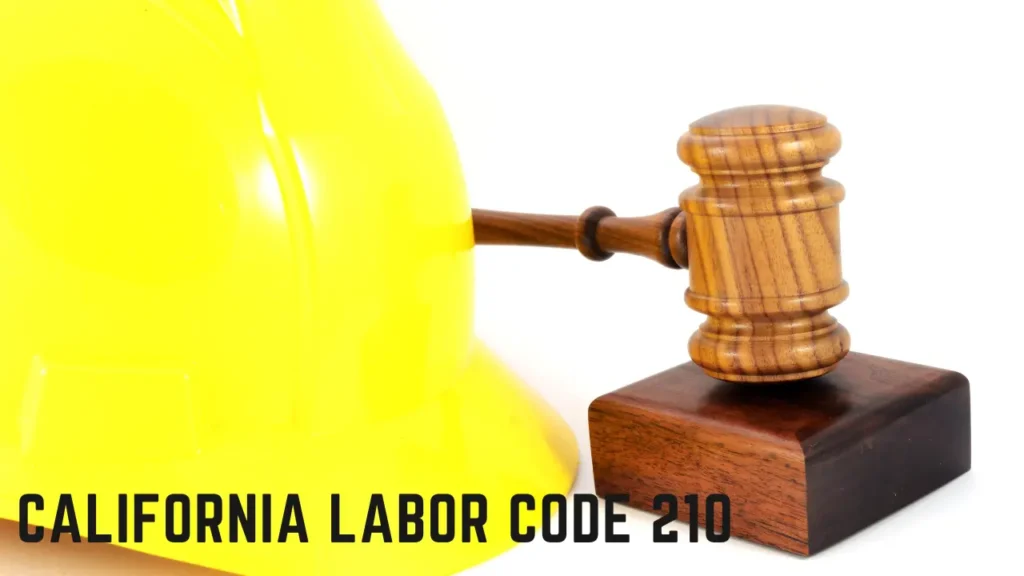Table of Contents
ToggleAs we navigate the intricacies of this significant legislation, we will explore its broader implications, the process of filing complaints, and the potential legal consequences for non-compliance. This discussion is not only crucial for employees seeking to understand and uphold their rights but also for employers striving to foster a transparent, lawful work culture.
The depth and breadth of this topic warrant further exploration, a journey that promises to be both enlightening and empowering.
Understanding Whistleblower Protections
In order to fully comprehend the protections afforded to whistleblowers, it is crucial to familiarize oneself with California Labor Code 1102.5 LC, which explicitly prohibits employers from retaliating against employees who report violations or refuse to participate in unlawful activities. This retaliation can include adverse actions such as termination, demotion, wage reduction, or denial of promotion.
It’s important to note that these protections extend to family members of whistleblowers, and cover a broad range of violations, including wage or hour infringements. Victims of retaliation have legal recourse, with the potential for significant financial settlements and corrective measures.
Employees have the right to report violations to government agencies, and employers can face substantial fines up to $10,000 per act of retaliation.
Legal Process for Retaliation Complaints
Navigating the legal process for retaliation complaints can be challenging, but understanding the necessary steps is crucial for employees seeking justice under California Labor Code 1102.5 LC.
When an employee believes they have faced retaliation for whistleblowing, they can initiate a complaint in the following way:
- File a retaliation complaint with the California Labor Commissioner’s Office within one year of the retaliatory action.
- Provide detailed evidence demonstrating that whistleblowing contributed significantly to the adverse employment action.
- Await the Commissioner’s investigation, during which the employer must prove that the adverse action taken was unrelated to the whistleblowing activity.
This process, while potentially intimidating, serves as a vital tool for employees to uphold their rights and seek remedies for unlawful retaliation.
Legal Consequences and References
Understanding the potential legal consequences of employer retaliation under California Labor Code 1102.5 LC is essential for both employees and employers. It’s pivotal to note that employers who violate this statute may be subject to civil penalties of up to $10,000 per violation. Successful whistleblower lawsuits can also lead to court-awarded attorneys’ fees.
Employees who suffer retaliation can seek redress through administrative complaints or lawsuits, leading to potential financial settlements. It’s critical to reference California Labor Code 1102.5 LC and case law such as Lawson v. PPG Architectural Finishes, Inc. and Scheer v. Regents of University of California for precedent and interpretation.
Employers are advised to ensure compliance to avoid legal consequences, while employees should be aware of their rights and protections.
How to File a Complaint
Having established the potential legal consequences associated with employer retaliation, we can now focus on the procedural aspects, particularly on how employees can file a retaliation or discrimination complaint under California Labor Code 1102.5 LC.
Filing a complaint involves a three-step process:
- Initial Contact: The first step is to contact the California Labor Commissioner’s Office. They can guide you through the process and provide necessary forms.
- Document Preparation: Carefully prepare the complaint, providing a detailed account of the retaliatory actions you experienced, and gather any supporting evidence.
- Submission: Submit the complaint, ensuring it is within the one-year deadline from the retaliatory act.
It is advisable to seek legal counsel to ensure your rights are adequately protected throughout this process.
Comprehending Labor Code Sections
To fully comprehend the protections and rights afforded to whistleblowers, it is crucial to delve into the specifics of the relevant sections of the California Labor Code, particularly 1102.5 LC and 1102.6.
Section 1102.5 LC explicitly prohibits employers from retaliating against employees who disclose legal violations to a government or law enforcement agency. This protection extends to those who refuse to participate in activities that would result in a violation of a state or federal statute.
Meanwhile, Section 1102.6 shifts the burden of proof onto employers in retaliation cases, requiring them to demonstrate that they would have taken the same adverse employment action in the absence of protected activities. Understanding these sections is integral to acknowledging the substantial protections whistleblowers are granted.
The Importance of Legal Violation Disclosure
Building on the comprehension of Labor Code sections, it’s imperative to highlight the significance of disclosing legal violations, a fundamental duty that fortifies the basis of whistleblower protections. The importance of legal violation disclosure hinges on three main pillars:
- Ensuring Accountability: It holds organizations accountable for their actions and fosters an ethical business environment.
- Upholding Legal Obligations: It enables employees to fulfill their legal obligations without fear of retaliation.
- Safeguarding Public Interest: It protects the public by exposing harmful activities or misconduct that may otherwise remain concealed.
These factors underscore the necessity of Labor Code 1102.5 LC, which protects whistleblowers, thereby encouraging the reporting of legal violations and promoting a culture of transparency and accountability in the workplace.
Updates and Compliance Measures
Continuous monitoring and timely implementation of updates to Labor Code 1102.5 LC is paramount for businesses to ensure their continued compliance with whistleblower protection regulations. Regular training sessions should be conducted for employees at all levels to familiarize them with the intricacies of this Labor Code section.
Furthermore, businesses must establish clear reporting channels for potential whistleblowers and ensure those channels are free from reprisal. Implementing stringent anti-retaliation policies, and enforcing them consistently, can serve as a deterrent to potential violations. Regular audits of these systems can help detect any potential non-compliance issues.
Case Laws and Examples
In the realm of whistleblowing and retaliation, several significant court cases provide illuminating examples of how California Labor Code 1102.5 LC is applied in legal proceedings.
- Lawson v. PPG Architectural Finishes, Inc. elucidates the broad protection extended to employees who refuse to participate in illegal activities, even when no formal report to a government agency is made.
- Scheer v. Regents of University of California underscores that the protection under the Code covers not only employees who disclose information to a government or law enforcement agency but also to a person with authority over the employee or another employee who has the authority to investigate the information provided.
- Diego v. Pilgrim United Church of Christ exemplifies that even non-profit organizations are not immune from retaliation claims under the Code.
Conclusion
In conclusion, understanding Labor Code 1102.5 LC is pivotal to ensure a lawful workplace atmosphere. It provides clear directives on whistleblowing protections, retaliation complaints, and the legal consequences thereof.
This code also underlines the need for disclosure of legal violations, timely updates, and compliance measures. Several case laws exemplify these protections, emphasizing the crucial role they play in fostering a culture of transparency and legality within organizations.















